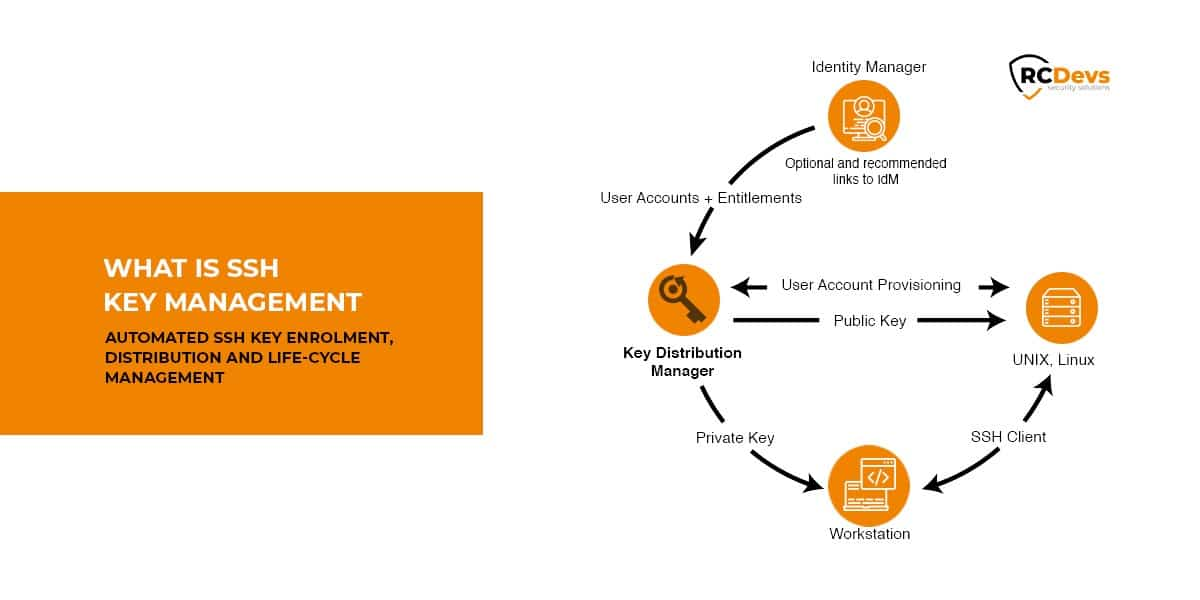Ever wondered how to secure your IoT devices from cyber threats while working remotely? Best RemoteIoT SSH key management is your answer. It's like putting a super-strong lock on your digital front door. This method ensures only authorized users can access your network, keeping hackers at bay. So, if you're looking to protect your IoT setup, you're in the right place.
In today's digital landscape, security is more important than ever. With remote work becoming the norm, managing SSH keys for IoT devices has become a critical task. This guide will walk you through the ins and outs of secure SSH key management, ensuring your network remains impenetrable to unauthorized access.
Whether you're a tech enthusiast or a professional managing a large-scale IoT infrastructure, understanding the best practices for SSH key management is essential. Let's dive into the world of secure connections and explore how you can safeguard your digital assets.
Read also:Jason Lindemann Net Worth The Untold Story Of Success And Wealth
Table of Contents
Introduction to RemoteIoT SSH Key Management
Why SSH Key Management Matters for RemoteIoT
Best Practices for Managing SSH Keys
Tools for Secure SSH Key Management
Common Risks and How to Avoid Them
Read also:Christian Kane The Charismatic Actor You Cant Help But Love
Strategies for Effective SSH Key Management
Automation in SSH Key Management
The Future of RemoteIoT SSH Key Management
Conclusion: Securing Your IoT Network
FAQs About RemoteIoT SSH Key Management
Introduction to RemoteIoT SSH Key Management
Managing SSH keys in a remote IoT environment is no small feat. It’s like juggling multiple locks while ensuring none of them falls to the ground. Best RemoteIoT SSH key management involves creating, distributing, and revoking keys efficiently to maintain network security.
SSH keys act as digital keys that grant access to your IoT devices. Unlike traditional passwords, they offer a higher level of security by using cryptographic algorithms. This makes them an ideal choice for securing remote connections.
But here's the catch: improper management can lead to serious security vulnerabilities. That's why understanding the best practices and tools for SSH key management is crucial. In this section, we'll explore the fundamentals and set the stage for a secure IoT setup.
Why SSH Key Management Matters for RemoteIoT
Imagine leaving your house keys lying around where anyone can pick them up. That's essentially what happens when SSH keys are not managed properly. RemoteIoT SSH key management is vital because it:
- Prevents unauthorized access to your network.
- Reduces the risk of data breaches.
- Ensures compliance with industry standards.
- Enhances overall network performance.
With the increasing number of IoT devices, the importance of secure SSH key management cannot be overstated. It's not just about protecting individual devices; it's about safeguarding the entire ecosystem.
Understanding the Risks
The risks associated with poor SSH key management are real and can have devastating consequences. From data theft to network downtime, the impact can be felt across the entire organization. Let’s take a closer look at some of these risks:
- Data Breaches: Unauthorized access to sensitive information.
- Network Downtime: Disruptions caused by security breaches.
- Compliance Issues: Failure to meet industry standards and regulations.
By implementing robust SSH key management practices, you can mitigate these risks and ensure a secure IoT environment.
The Basics of SSH Keys
Before diving into the intricacies of SSH key management, let's cover the basics. SSH keys are pairs of cryptographic keys used for authentication. They consist of a public key and a private key. The public key is shared with the server, while the private key remains with the user.
Here’s how they work:
- The user generates a key pair on their local machine.
- The public key is added to the server's authorized_keys file.
- When the user attempts to connect, the server verifies the public key against the private key.
- If the keys match, access is granted.
This process eliminates the need for passwords, making it more secure and efficient. However, proper management is essential to maintain this level of security.
Best Practices for Managing SSH Keys
Managing SSH keys effectively requires a combination of strategies and tools. Here are some best practices to consider:
- Limit Key Distribution: Only distribute keys to trusted users and devices.
- Regularly Rotate Keys: Replace old keys with new ones to reduce the risk of compromise.
- Monitor Key Usage: Keep track of who is using which keys and when.
- Revoke Unused Keys: Remove keys that are no longer in use to prevent unauthorized access.
By following these practices, you can ensure your SSH keys remain secure and effective. Let’s explore some tools that can help streamline this process.
Tools for Secure SSH Key Management
There are several tools available that can simplify SSH key management. Some popular options include:
- SSH Key Manager: A comprehensive tool for managing SSH keys across multiple devices.
- HashiCorp Vault: A secure solution for storing and managing secrets, including SSH keys.
- Keybase: A user-friendly platform for managing encryption keys.
These tools offer features like key rotation, monitoring, and automation, making it easier to maintain a secure IoT network. Choosing the right tool depends on your specific needs and budget.
Common Risks and How to Avoid Them
Despite the best efforts, risks can still arise in SSH key management. Here are some common risks and how to avoid them:
- Key Leakage: Ensure keys are stored securely and access is restricted.
- Outdated Keys: Regularly update and rotate keys to maintain security.
- Improper Access Control: Implement strict access controls to prevent unauthorized use.
By staying vigilant and proactive, you can minimize these risks and maintain a secure IoT environment.
Strategies for Effective SSH Key Management
Developing a robust strategy for SSH key management involves several key components. Here are some strategies to consider:
- Centralized Management: Use a centralized system to manage all SSH keys.
- Automated Processes: Implement automation to handle routine tasks like key rotation.
- Regular Audits: Conduct regular audits to ensure compliance and security.
These strategies can help streamline the management process and ensure long-term security.
Implementing Automation
Automation plays a crucial role in SSH key management. By automating tasks like key generation, distribution, and revocation, you can reduce the risk of human error and improve efficiency. Tools like Ansible and Puppet can be used to automate these processes, making them a valuable addition to your management strategy.
Automation in SSH Key Management
Automation is the key to efficient SSH key management. It allows you to handle repetitive tasks with precision and consistency. Here are some ways automation can enhance your management efforts:
- Key Generation: Automatically generate new keys as needed.
- Key Distribution: Distribute keys to authorized users and devices seamlessly.
- Key Revocation: Quickly revoke keys when they are no longer needed.
By leveraging automation, you can focus on more critical tasks while ensuring your SSH keys remain secure and up-to-date.
The Future of RemoteIoT SSH Key Management
As technology continues to evolve, so too will the methods for managing SSH keys. Emerging trends like quantum computing and AI-driven security solutions are set to transform the landscape of SSH key management. These advancements will offer new ways to enhance security and efficiency.
Staying ahead of the curve is essential for maintaining a secure IoT network. By keeping up with the latest trends and technologies, you can ensure your SSH key management practices remain effective and relevant.
Conclusion: Securing Your IoT Network
In conclusion, best RemoteIoT SSH key management is a critical component of securing your IoT network. By understanding the basics, implementing best practices, and leveraging the right tools, you can protect your digital assets from cyber threats.
We encourage you to take action today by reviewing your current SSH key management practices and making necessary improvements. Don’t forget to share this article with your colleagues and leave a comment below with your thoughts and questions.
FAQs About RemoteIoT SSH Key Management
Q: What is SSH key management?
A: SSH key management involves creating, distributing, and revoking SSH keys to maintain network security.
Q: Why is SSH key management important for IoT?
A: It prevents unauthorized access, reduces data breaches, and ensures compliance with industry standards.
Q: What tools can I use for SSH key management?
A: Popular tools include SSH Key Manager, HashiCorp Vault, and Keybase.
Q: How can I automate SSH key management?
A: Use tools like Ansible and Puppet to automate key generation, distribution, and revocation.
Remember, securing your IoT network is a continuous process. Stay informed, stay vigilant, and stay secure!


